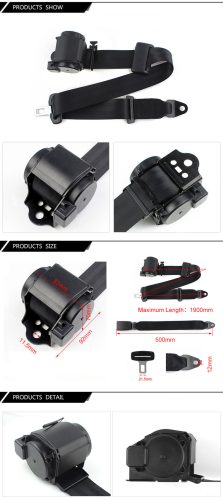Cotton webbing’s eco-friendly characteristics contribute to its appeal as a sustainable and environmentally conscious choice. Here are some ways in which cotton webbing aligns with eco-friendly principles:
- Biodegradable Material: Cotton is a natural fiber that is biodegradable, meaning it breaks down naturally over time without causing long-term harm to the environment. This contrasts with many synthetic materials that can persist in the environment for years.
- Renewable Resource: Cotton is a renewable resource that can be grown and harvested annually. This reduces the pressure on non-renewable resources and minimizes the depletion of natural reserves.
- Lower Carbon Footprint: The production of cotton typically generates a lower carbon footprint compared to the manufacturing processes of synthetic materials. Cotton cultivation requires fewer energy-intensive processes.
- Sustainable Farming Practices: Many cotton producers are adopting sustainable farming practices, such as organic farming and reduced pesticide use. These practices help protect soil health and reduce the impact on surrounding ecosystems.
- Water Efficiency: While cotton cultivation can be water-intensive, sustainable practices such as drip irrigation and rainwater harvesting are being employed to minimize water consumption.
- Biodiversity Promotion: Organic cotton farming often involves planting cover crops and adopting crop rotation techniques, which can enhance biodiversity and reduce the need for chemical inputs.
- Minimal Chemical Usage: In organic cotton production, synthetic pesticides, herbicides, and genetically modified organisms (GMOs) are avoided. This reduces the potential negative impacts on ecosystems and workers’ health.
- Reduced Water Pollution: Cotton processing in organic and environmentally conscious systems often involves using fewer chemicals and dyes, reducing the potential for water pollution.
- Recyclability: While cotton webbing may not be as recyclable as some other materials, its biodegradability means it can return to the earth in a way that synthetic materials cannot. It can also be repurposed for certain applications.
- Natural Look and Feel: The natural aesthetic of cotton webbing contributes to a sense of eco-friendliness, as it aligns with the desire for products that feel closer to nature.
- Supporting Sustainable Practices: By choosing cotton webbing made from organic or sustainably sourced cotton, consumers are indirectly supporting and encouraging sustainable farming and production practices.
- Mindful Consumer Choice: Using cotton webbing in DIY projects, crafts, and products sends a message that eco-friendly materials matter. It encourages a shift towards more sustainable consumption habits.
It’s important to note that while cotton has eco-friendly attributes, there are also considerations related to its water usage, pesticide application, and overall environmental impact in conventional farming. Opting for certified organic cotton or cotton produced under recognized sustainable standards can further enhance the positive environmental aspects of using cotton webbing.


